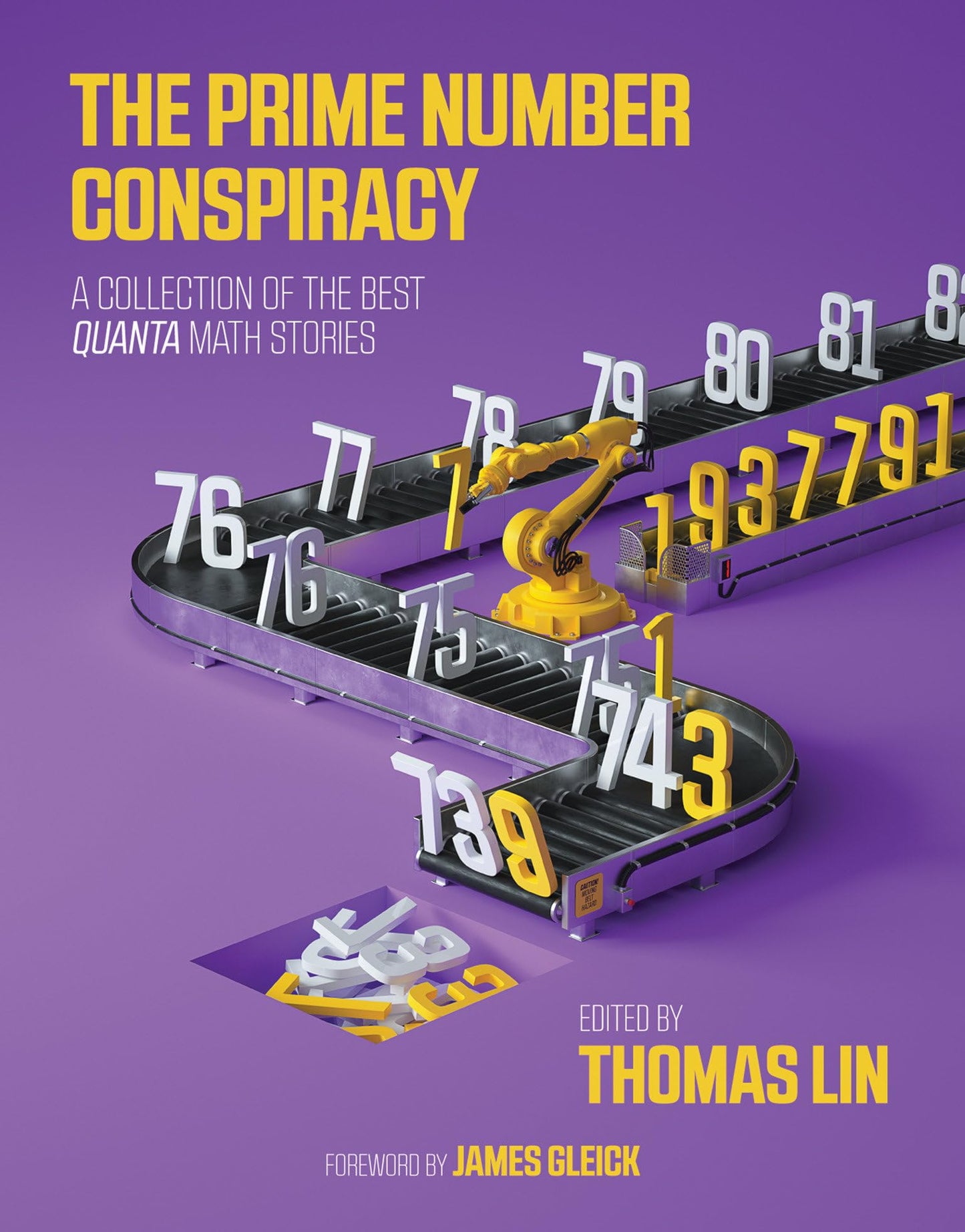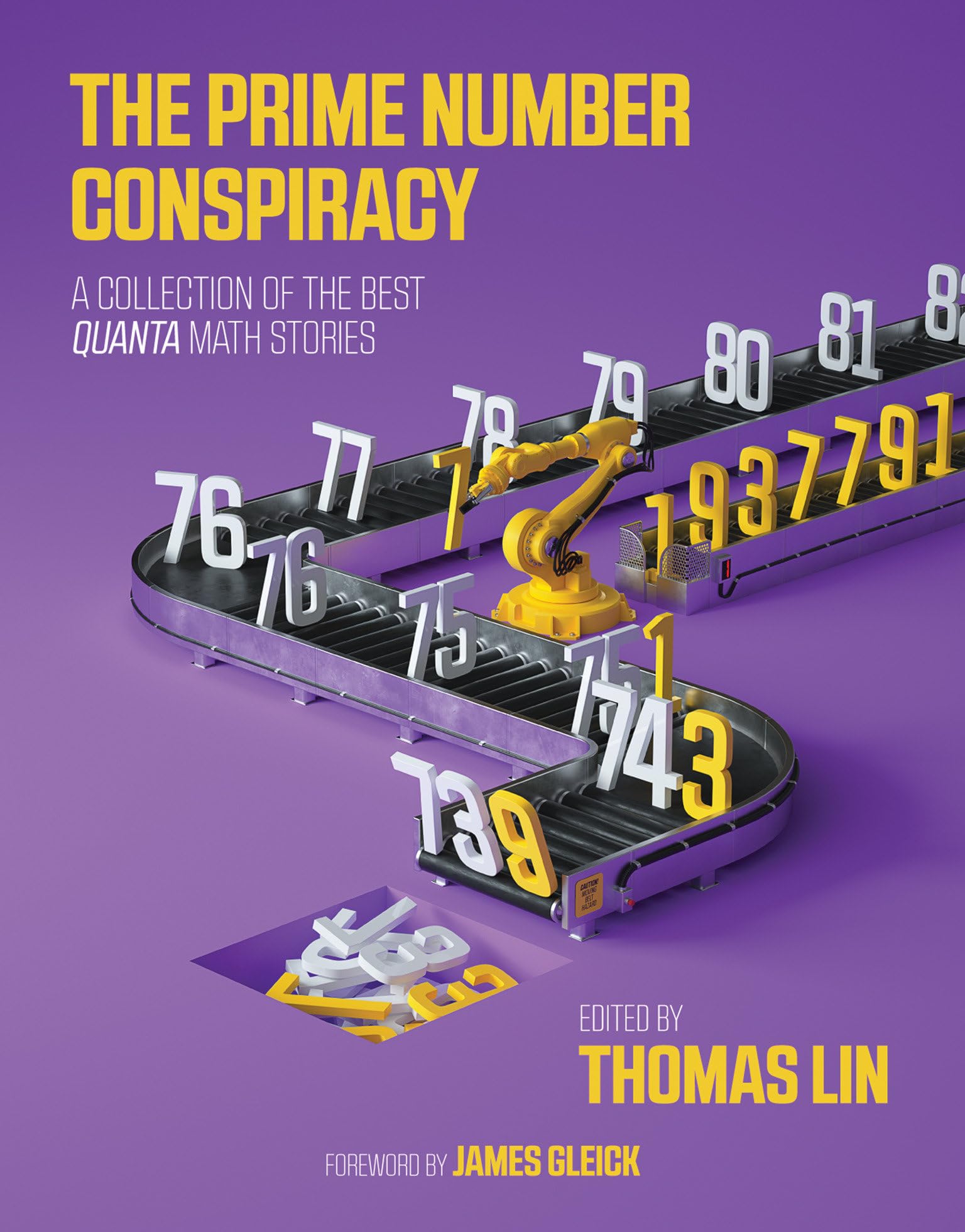The MIT Press
Prime Number Conspiracy: The Biggest Ideas in Math from Quanta
Regular price
$7.95 USD
Regular price
Sale price
$7.95 USD
Unit price
per
Shipping calculated at checkout.
Couldn't load pickup availability
Title: Prime Number Conspiracy: The Biggest Ideas in Math from Quanta
Author: Thomas Lin
ISBN: 9780262536356
Publisher: The MIT Press
Published: 2018
Binding: Paperback
Language: English
Publisher Description:
The Pulitzer Prize-winning magazine's stories of mathematical explorations show that inspiration strikes haphazardly, revealing surprising solutions and exciting discoveries--with a foreword by James Gleick These stories from Quanta Magazine map the routes of mathematical exploration, showing readers how cutting-edge research is done, while illuminating the productive tension between conjecture and proof, theory and intuition. The stories show that, as James Gleick puts it in the foreword, "inspiration strikes willy-nilly." One researcher thinks of quantum chaotic systems at a bus stop; another suddenly realizes a path to proving a theorem of number theory while in a friend's backyard; a statistician has a "bathroom sink epiphany" and discovers the key to solving the Gaussian correlation inequality. Readers of The Prime Number Conspiracy, says Quanta editor-in-chief Thomas Lin, are headed on "breathtaking intellectual journeys to the bleeding edge of discovery strapped to the narrative rocket of humanity's never-ending pursuit of knowledge." Winner of the 2022 Pulitzer Prize for Explanatory Reporting, Quanta is the only popular publication that offers in-depth coverage of the latest breakthroughs in understanding our mathematical universe. It communicates mathematics by taking it seriously, wrestling with difficult concepts and clearly explaining them in a way that speaks to our innate curiosity about our world and ourselves. Readers of this volume will learn that prime numbers have decided preferences about the final digits of the primes that immediately follow them (the "conspiracy" of the title); consider whether math is the universal language of nature (allowing for "a unified theory of randomness"); discover surprising solutions (including a pentagon tiling proof that solves a century-old math problem); ponder the limits of computation; measure infinity; and explore the eternal question "Is mathematics good for you?" Contributors
Ariel Bleicher, Robbert Dijkgraaf, Kevin Hartnett, Erica Klarreich, Thomas Lin, John Pavlus, Siobhan Roberts, Natalie Wolchover
Copublished with Quanta Magazine
Author: Thomas Lin
ISBN: 9780262536356
Publisher: The MIT Press
Published: 2018
Binding: Paperback
Language: English
Publisher Description:
The Pulitzer Prize-winning magazine's stories of mathematical explorations show that inspiration strikes haphazardly, revealing surprising solutions and exciting discoveries--with a foreword by James Gleick These stories from Quanta Magazine map the routes of mathematical exploration, showing readers how cutting-edge research is done, while illuminating the productive tension between conjecture and proof, theory and intuition. The stories show that, as James Gleick puts it in the foreword, "inspiration strikes willy-nilly." One researcher thinks of quantum chaotic systems at a bus stop; another suddenly realizes a path to proving a theorem of number theory while in a friend's backyard; a statistician has a "bathroom sink epiphany" and discovers the key to solving the Gaussian correlation inequality. Readers of The Prime Number Conspiracy, says Quanta editor-in-chief Thomas Lin, are headed on "breathtaking intellectual journeys to the bleeding edge of discovery strapped to the narrative rocket of humanity's never-ending pursuit of knowledge." Winner of the 2022 Pulitzer Prize for Explanatory Reporting, Quanta is the only popular publication that offers in-depth coverage of the latest breakthroughs in understanding our mathematical universe. It communicates mathematics by taking it seriously, wrestling with difficult concepts and clearly explaining them in a way that speaks to our innate curiosity about our world and ourselves. Readers of this volume will learn that prime numbers have decided preferences about the final digits of the primes that immediately follow them (the "conspiracy" of the title); consider whether math is the universal language of nature (allowing for "a unified theory of randomness"); discover surprising solutions (including a pentagon tiling proof that solves a century-old math problem); ponder the limits of computation; measure infinity; and explore the eternal question "Is mathematics good for you?" Contributors
Ariel Bleicher, Robbert Dijkgraaf, Kevin Hartnett, Erica Klarreich, Thomas Lin, John Pavlus, Siobhan Roberts, Natalie Wolchover
Copublished with Quanta Magazine

